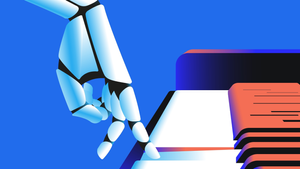The use of music to train a generative AI model "will rarely, if ever, be fair use". Or so say three organisations representing the US record industry which have again hit back at arguments made by tech companies that training generative AI models with existing content constitutes fair use under American law, meaning they don’t need permission from copyright owners.
The first principle of copyright - say the Recording Industry Association Of America, American Association Of Independent Music and Recording Academy - is "to promote human creative endeavours".
"That purpose is served", they go on, "by protecting human creators from having their works used to develop generative AI models that threaten to displace human creators by producing outputs that do not embody human creativity while supplanting works of human creativity in the marketplace. Such uses will rarely, if ever, be fair uses".
The three organisations were responding to the US Copyright Office's ongoing inquiry into the impacts of AI on copyright. Thousands of submissions were made to that inquiry by both AI companies and copyright owners.
Among other things, they set out in black and white the core disagreement between the AI sector and the copyright industries, ie whether or not consent must be sought before existing content is used in AI training or whether such use is fair use.
Following the first round of submissions, interested parties were able to submit 'reply comments'. The deadline for doing so was yesterday. In their reply comment, the record industry groups also dispute the idea that tech companies having to navigate copyright and secure licences to make use of existing content will stop the potential of AI from being realised.
They say the Copyright Office should reject “the false and dangerous dichotomy posed by some of the tech companies and their supporters … suggesting that humanity and, by extension, the Office and Congress, is faced with a binary choice to either reap all the benefits that AI promises or respect the long-established legal rights of human creators".
"There is no reason that implementations of AI cannot both reach their full potential and protect and respect the rights of creators at the same time", they go on.
"In fact, the application of a clear and predictable legal framework to AI is likely to foster, rather than hinder, its development by eliminating legal and business uncertainty; limiting the risk of litigation; and, most important, ensuring that our society continues investing in human creativity".

